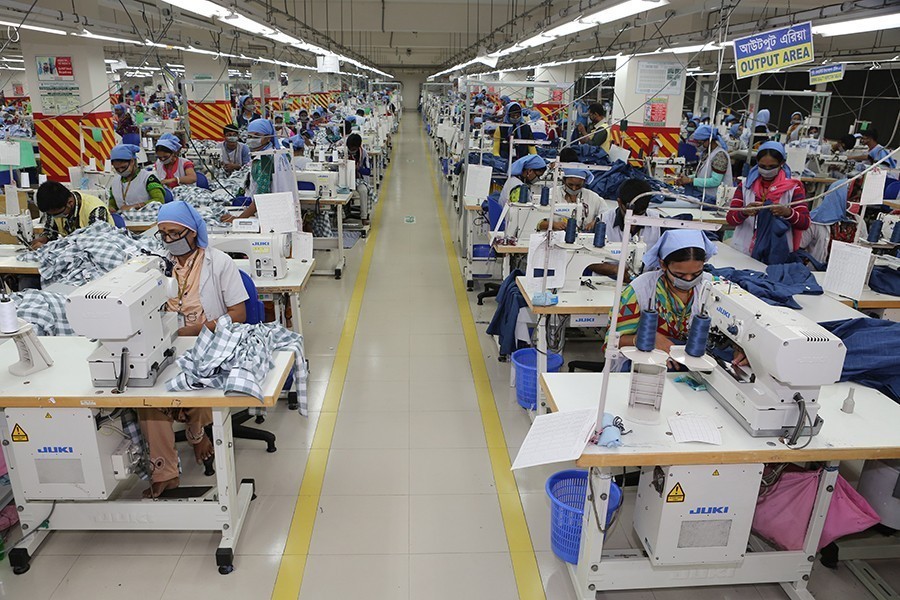Apparel brands will expose themselves to considerable liability risks if they fail to negotiate and sign a follow-up agreement to the Bangladesh Accord safety programme that would expire in the next two weeks, according to the latest analysis.
The legal brief by Clean Clothes Campaign (CCC), the European Center for Constitutional and Human Rights, and Worker Rights Consortium explored the legal liability of apparel brands under existing and upcoming supply chain legislation in relation to the possible expiration of the Bangladesh Accord.
According to the analysis, some 91 factories supply for Aldi North, and only 15 factories have fire alarms and sprinklers in place in line with the Accord's Corrective Action Plan. The remaining 76 factories still lack either or both features.
Auchan, which the right groups claimed is not transparent about its supply chain, sources from 40 Bangladeshi supplier factories.
And only 10 factories have fire alarms and sprinklers while the rest are yet to install any or both features.
Out of 63 factories from where Carrefour sources, 42 have no fire alarm and 43 have no sprinkler system installed.
In only 14 factories were all fire alarms and sprinklers correctly installed, according to the findings.
Citing Accord data, a CCC statement said notwithstanding the remediation of tens of thousands of identified safety hazards, hundreds of factories in Bangladesh still lack such basics as verified fire alarms and sprinklers.
If the Accord expires, these factories pose a major risk to worker safety and a liability risk to Carrefour, said Carolijn Terwindt of the CCC.
Accord statistics indicate that 23 per cent of issues that are pending verification turn out not to be up to standard, this analysis only considers an issue fully remediated once verification confirms it.
"Without a new agreement signed by apparel brands and retailers, the Bangladesh Accord will cease to exist," the CCC said in a statement.
The Accord agreement, originally signed in 2013 after the Rana Plaza building collapse which killed more than 1,100 workers and injured many more, revolutionised factory safety inspections in Bangladesh.
Thanks to its binding nature, transparent reporting, and robust grievance mechanism, the Accord now has a well established track-record of saving workers' lives by dramatically reducing fatal building collapses and factory fires, it added.
Already in January 2020, the brands and unions that govern the Accord agreed to negotiate a binding follow-up agreement with the option to expand the programme to other countries, to ensure the important safety work would remain binding after the expiry of the current contract.
Due to the Covid-19 pandemic, negotiations started late and have dragged on beyond the initial deadline of 31 May 2021.
"Despite their claims to care about worker safety, brands like H&M, Aldi Nord, Otto, Auchan, and Carrefour have failed to sign an agreement," the statement added.
"Their failure to do so is in contravention to their human rights due diligence obligations, both under the French Corporate Duty of Vigilance Law or Loi de Vigilance as well as the upcoming German Act on Corporate Due Diligence Obligations in Supply Chains or Lieferkettengesetz," it added.
"Companies leaving the Accord risk legal proceedings under the French as well as the German law. Under these new laws, a company will be liable if workers in their supply chain are harmed in a factory fire or building collapse and the brand has not fulfilled its due diligence obligations."
On its own, the mechanism of the Ready-made-garment Sustainability Council (RSC) in Bangladesh is not adequate to fulfil company human rights due diligence obligations.
The RSC was established to take over the Accord's inspection operations on the ground in Bangladesh, but cannot hold brands accountable.
Unless there is a legally binding commitment by brands to continue to support the Accord's work -- including both the requirement on factories to operate safely and making it financially feasible for them to do so -- garment workers' lives in Bangladesh will be at risk, Ben Hensler of Worker Rights Consortium said.
"Under human rights due diligence laws, this is a risk that, if brands refuse to renew the Accord, they would ignore at their own peril as well", Ben Hensler added.


